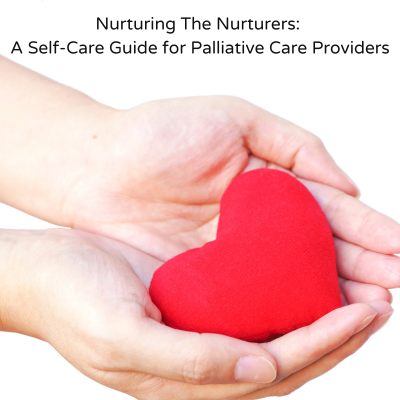Nurturing The Nurturers: A Self-Care Guide for Palliative Care Providers

Caring for those struggling with long-term illnesses or conditions is rewarding and demanding. No one knows this better than those working in palliative care. As dedicated professionals, you offer support, comfort, and compassion to patients and their families, but you tend to neglect your health in the bargain.
Palliative care can be emotionally and physically taxing. It involves long hours, intense emotional experiences, and complex decision-making. Many care providers are vulnerable to burnout, and even more suffer from the weight of grief that the patient and their family are dealing with, which takes a toll on their physical and mental health.
Taking Care of You
Palliative care is undoubtedly a noble profession, but to give your best, there are things one must do, the topmost being prioritizing self-care and ensuring that you are at your best, physically and mentally. Here are some things you can do to help with that.
Set Boundaries
Compassion for your charge is one of the core qualities of a palliative care provider; however, compassion fatigue is also a genuine thing. Establish clear working hours, take breaks, and learn to say ‘no’ when necessary. This will help prevent exhaustion and being overwhelmed by what your charge and the family are going through.
Lean on Someone
It is easy to get caught up in the intense emotions, like grief, sadness, and even frustration or anger, that your charge is dealing with. It is crucial to acknowledge these feelings and ask for support. Colleagues, supervisors, and even mental health professionals who understand the profession can offer a safe space to help you process these emotions and offer guidance.
Stay Fit
A nutritious diet, sufficient sleep, and regular exercise must always be a priority. Exercise or any form of physical activity also helps manage stress, builds resilience, and keeps you in a good mood.
Make Time for Hobbies
A healthy work-life balance is essential to staying healthy and happy. Taking the time to do something you love, whether reading, painting, playing a sport, gardening, or even cooking, stimulates the brain, encouraging growth and building self-esteem and resilience. They also offer a purpose, something to focus on outside your job.
Reflect
Journaling, mindfulness exercises, or other reflection practices are powerful tools for self-awareness and growth. Reflecting on experiences allows you to process emotions, gain insights, and develop healthy coping mechanisms. Most importantly, they help separate your feelings from those of your charge and tackle negative mindsets from the get-go.
It’s Time to Prioritise You
No matter how much you love your job or how deep your commitment to your patients is, the pressure of being a care provider will start to weigh on you over time. Putting your physical and mental health first is thus a necessity that will help you stay resilient and allow you to explore your passion for helping those in need.
Self-care is a non-negotiable part when you are a caregiver. Just like when you are in an airplane, and you need first to wear an oxygen mask in case of an emergency before you help others, you need to care for yourself, too, to give your best as a caregiver.






